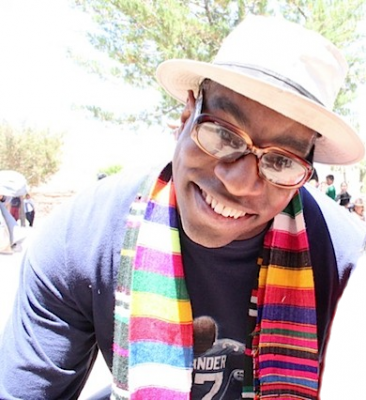
A few years ago, Leon McLaughlin was traveling through Mexico, and met a woman who told him about a previous American visitor. The visitor had drained her bathtub of standing water, thinking he was doing her a favor.
Instead, the woman cried. It turned out that was her water supply for a month. Gone down the drain.
The incident brought home to McLaughlin how vital safe, clean water is to people's lives - and how easily it is to take it for granted. But McLaughlin wasn't going to take it for granted.
He had an idea that could bring life-sustaining water to the woman in Mexico and millions around the world for mere pennies a gallon.
It is a fascinating journey of one person's determination to make a difference.
McLaughlin, a Cleveland native, arrived in Seattle three decades ago. He worked as the staff adviser at the Paramount Theatre until the early-1990s, then landing at the Seattle Repertory Theater and investing a bit in real estate. By the mid-1990s, McLaughlin had another idea - selling coffee-making equipment in Canada.
The coffee business and McLaughlin's global travels got him interested in one of the key ingredients - safe, clean water. McLaughlin was struck by how much of the world didn't have reliable supply of safe water, whether for drinking, cooking, or even brewing coffee.
He started researching the issue, taking online courses from Sacramento State University in California to get a degree in water management. From there, he created his own company, LAM, LLC, (the name drawn from McLaughlin's initials) to deliver water to developing countries and areas hit by natural disasters such as floods or hurricanes.
All along, McLaughlin did a variety of things to generate income. He ushered nights at the Rep. He sold real estate. And he shined shoes at the Columbia Tower. In fact, his shine stand functioned as both a convenient meeting place for all kinds of informal advisers and the de facto world HQ for LAM, LLC. In 2008, McLaughlin founded the Clean Water Foundation, a non-profit corporation.
McLaughlin came up with an approach elegant in its simplicity. Like a child's Lego ® set, McLaughlin envisioned a water purification system that could be snapped together like the plastic blocks, not dependent upon written instructions, that could be assembled and put into operations anywhere in the world. He identified US manufacturers of purification equipment, piping, water bags for storage, even individual containers so children could get fresh, clean water at a school or hospital and take it back to their families.
It was a powerful idea, but McLaughlin knew he couldn't pull it off by himself. He needed a partner with truly global reach. He found just such a partner only a few miles down Interstate 5 from Seattle's World Vision, the highly regarded global humanitarian agency headquartered in Federal Way, Washington.
World Vision would provide the global distribution network McLaughlin needed to take his idea from the theoretical to the real. When flooding hit Bolivia, McLaughlin got to put his concept to the test. World Vision asked he could install six machines in Bolivia. McLaughlin delivered, pulling together the needed equipment, dispatching it to Bolivia, and making sure it was installed properly and turning out hundreds of gallons of safe, clean water for flood-stricken Bolivians.
Now McLaughlin and World Vision have a new mission. Their goal is to install 100 Water purification machines - a number of schools and hospitals around the world.
It will take a renewed effort by McLaughlin but anyone who knows this determined man with the infectious grin has no doubt he'll find a way to succeed.







